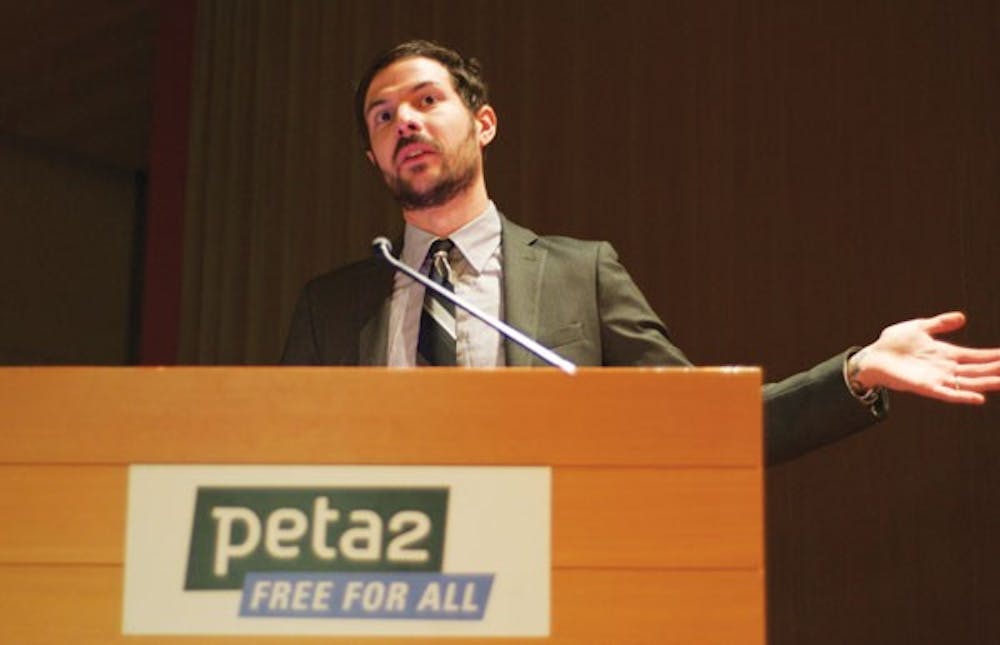People for the Ethical Treatment of Animals held a demonstration Tuesday to “confront ASU’s classroom cruelty.”
About 30 people came to the Memorial Union’s auditoriums Tuesday afternoon for the event, which included a slide show presentation and concluded with a question and answer
session.
PETA came to ASU to draw attention to experiments in biology classes that it alleges are cruel and inhumane, particularly dissections and vivisections.
In some biology classes at ASU, students participate in the vivisection — dissection while the animal is still alive — of frogs to see how their circulatory systems work, according to PETA.
“We’re encouraging people to ask ASU to do better,” said Justin Goodman, research associate supervisor in PETA’s Laboratory Investigations Department. Goodman travels the country talking to universities about the treatment of animals.
Some of the ways students can help are leafleting, signing petitions, writing letters to the University and opinion writing to local newspapers, he said.
Last year PETA filed a complaint against the University with the U.S. Department of Agriculture after ASU records confirmed student complaints that PETA received about inhumane practices in some courses.
PETA wanted Tuesday’s presentation to be an open conversation between the organization and ASU, he said.
“We genuinely wanted to have a dialogue. I wouldn’t like this to become adversarial — I think it becomes unproductive at that point,” he said. “We’ve tried to reach ASU for months.”
Skip Derra, national media relations officer and science writer for ASU, said the University has been contacted by PETA three times in the last year.
“We reviewed our procedure when PETA presented alternatives and found that the PETA suggestions did not provide the educational experience of the present method,” he said in an e-mail.
ASU communicated that to PETA, he said.
“PETA has debated this issue for years and at many places around the country,” he said. “They know what the opposing view is, but this doesn’t change their approach.”
Jeremiah Molinaro, a neuroscience postgraduate, works with animals for his experiments and was in attendance at the discussion.
“Some people are really against experimenting on animals for medical research and say nothing useful has come from it. That’s just not true,” he said. “I guess it’s how people define the suffering of animals.”
When animals are put under anesthesia, they are not suffering, they are unconscious, he said.
“I believe [the experiments] are going toward a greater good. It’s increasing human knowledge, that itself is beneficial,” he said.
Communications junior Kirby Mauro is vice president of Students Taking Action for Animal Rights, an ASU organization that helped organize the event.
“We had asked ASU to participate in the event. We sent a letter and a petition with 1,500 student signatures,” she said.
Mauro said the event had a good turnout.
“A lot of good questions were asked,” she said. “We definitely plan to continue with this campaign though we are not positive what the next step is.”
Goodman said ASU students have to demand better from their University.
“ASU is killing animals in their classrooms. The standing of their University is a concern,” he said. “ASU should use the most modern and ethical learning method available.”
A statement released by the University said animals are never treated cruelly or inhumanely at ASU.
Reach the reporter at mmbarke1@asu.edu





